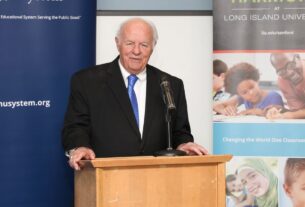The Stakes of Manufacturing and Health Care in the Wake of Project 2025
In the ongoing political discourse, House Speaker Mike Johnson’s calls to repeal significant legislation like the Affordable Care Act (ACA) and the CHIPS Act have reignited discussions about Donald Trump’s intentions to implement Project 2025. This initiative aims to reshape various aspects of U.S. governance and economic policy, particularly in manufacturing and healthcare.
The Manufacturing Landscape
One of the critical talking points in this debate is the state of manufacturing jobs in the U.S. Under the Trump administration, approximately 200,000 manufacturing jobs were lost, a statistic that starkly contrasts with the current administration’s achievements. Since taking office, over 700,000 new manufacturing jobs have been created, demonstrating a significant rebound in this sector. This revitalization is attributed to various factors, including investments in technology, infrastructure, and workforce development.
A continuation in government would certainly bring about exceptional results of all the policies already enacted and groundwork done to date as shown in the above picture, these efforts are all projected to yield more positive results which would sadly all be lost if there is a change in government.
The current administration’s focus on bolstering domestic manufacturing aligns with broader goals of economic resilience and national security. The CHIPS Act, in particular, represents a strategic investment in semiconductor manufacturing, essential for everything from consumer electronics to advanced defense systems. By fostering a robust manufacturing base, the U.S. aims to reduce dependency on foreign supply chains, especially in light of global uncertainties.
The Affordable Care Act and Health Care Reform
In tandem with discussions about manufacturing, the ACA remains a contentious issue. Speaker Johnson’s push for repeal reflects a longstanding Republican agenda to dismantle the healthcare reforms instituted during the Obama administration. Proponents of the ACA argue that it has expanded healthcare access to millions of Americans, while critics contend that it has led to increased premiums and limited choices.
The potential repeal of the ACA raises concerns about the future of healthcare access and affordability in the U.S. Critics warn that dismantling the ACA could reverse gains made in healthcare coverage, especially for vulnerable populations. Moreover, the impact on manufacturing workers—who often rely on employer-sponsored health insurance—could be significant, potentially leading to increased financial strain and diminished health outcomes.
Trump’s Project 2025 and Economic Vision
As Trump seeks to implement Project 2025, the focus on manufacturing and healthcare reform will likely be pivotal. The project envisions sweeping changes across various government sectors, aiming to align policies with conservative values and economic priorities. Trump’s agenda is expected to emphasize deregulation, tax cuts, and a return to policies that prioritize traditional manufacturing jobs.
However, the stark contrast between the current administration’s job creation record and Trump’s past performance presents a critical challenge for the former president as he rallies support. Advocating for policies that led to job losses while simultaneously promising job creation requires a delicate balancing act.
Conclusion
The ongoing discussions surrounding the repeal of the Affordable Care Act and the CHIPS Act are emblematic of broader ideological battles in American politics. As Mike Johnson and other Republicans push for significant policy shifts, the impact on manufacturing jobs and healthcare access will remain central to the narrative. With Trump’s Project 2025 looming, the stakes are high for both economic recovery and the future of healthcare in the U.S. The decisions made in the coming months will shape not only the political landscape but also the livelihoods of countless Americans.


